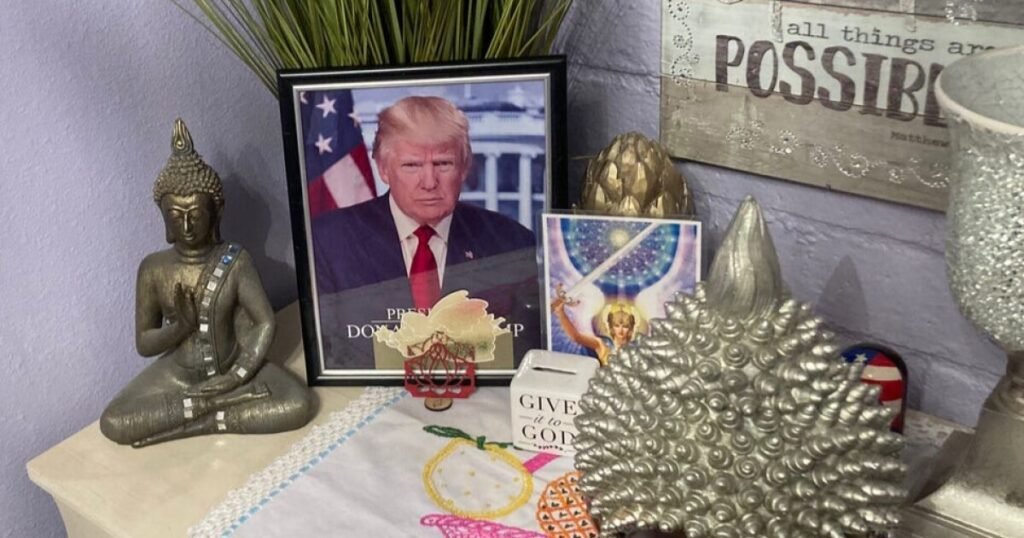One might think that in Sedona’s spiritual scene, where hippies, crystals, and energy vortices abound, folks would lean to the left politically. But it’s turning out to be more complex than that. In fact, it seems that the modern political landscape has created a sort of horseshoe, bending around to connect both ends of the spectrum.
In some of my conversations while covering local democratic events, I talked to yoga instructors who expressed some surprising views. One woman mentioned rolling her eyes at the new age crowd, saying she found many of them “grossly anti-trans” and even supporters of Donald Trump, which, honestly, took me aback.
Discussing figures like Marianne Williamson—who has often appeared on the left side of the political arena—it’s intriguing to see how the landscape has shifted. Williamson distinctly carved out a space to differentiate herself from mainstream Democrats like Joe Biden, particularly on issues like Israel and Gaza.
There’s a clear indication that, while some individuals in Sedona may have changed their outlook, broader political transformations are occurring even in the spiritual community. Anthropologist Susanna Crockford noted a notable shift towards “right-wing engagement.” She remarked that, previously, discussing politics would confuse people who just wanted to focus on their spiritual pursuits. Yet, recently, there’s been noticeable alignment with more skeptical views toward vaccinations and governmental authority, particularly catalyzed by the pandemic era.
It’s also worth noting that Sedona is a relatively affluent community. Many residents seem to be seeking refuge from traditional political and economic paradigms. They often resist capitalism, yet paradoxically monetize their spiritual practices. It’s a curious overlap.
For instance, I spoke with Anita Dalton, the head of the New Age Sedona Center. She mentioned viewing Trump as a sort of “spiritual salesman” and expressed trust in certain sellers despite their controversial pasts concerning consumer protection. They seem to thrive on narratives that resonate with the community’s sentiments.
When I interviewed another person, who went by Ira Alia Anam, she identified transformation in her views after the pandemic and surprising alignment with what she referred to as “Arizona gun-shotting cowboys.” Interestingly, she admitted varying levels of agreement with different groups of people across the political spectrum, particularly on issues close to her heart, like anti-vaccine sentiments.
The political landscape in the U.S. has evolved, exposing unusual alliances between leftist and rightist notions. It reflects a broader discontent with various systems: health, economy, and governance. Democrats have heavily leaned into defending scientific principles and democratic processes but seem to have missed addressing the underlying dissent and skepticism simmering among the populace.
Engaging with these communities led me to realize that there’s a disconnect on how various political messages resonate with people’s lived experiences. It’s fascinating and puzzling to see how individuals navigate their identities within such complicated alignments.
In summary, I found that many individuals, regardless of their specific beliefs, feel a rift between their realities and what the Democrat party offers. One woman even pointed out Bernie Sanders as a rare exception of a politician on the left she truly trusts, highlighting a palpable longing for populist solutions. It’s a remarkable moment in political discourse, revealing layers of complexity that challenge conventional labels.







